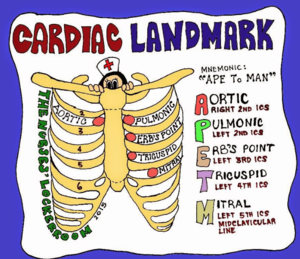14119012
HPA - Hyperthyroidism
Resource summary
| Question | Answer |
| What is it? | Excessive functional activity of the thyroid gland |
| Prevalence? | In Australia, thyroid conditions affect approx 7.5% of women and 1.5% of men and the prevalence increases with age. |
| Risk factors | Viral infection of the thyroid Pregnancy Auto-immune disease (i.e graves) Family history (genetic) Females higher risk |
| Aetiology | Graves disease is a large cause Pituitary issues Thyroiditis Thyroid storm Excess thyroid hormone replacement medication |
| Graves disease (what is it? epidem, presentation) | an autoimmune disease caused by a defect in immunoregulation in genetically predisposed individuals. It leads to a production of thyroid-stimulating antibodies. Occurs five times more often in women. Increased iodine intake is associated with increased frequency of hyperthyroidism. People with this disease have an enlarged thyroid gland (goiter) and symptoms of hyperthyroidism. Often seen with bulging eyes. Goiter results from excess TSH |
| Thyroid storm | extreme hyperthyroidism (life threatening) due to infection, stress, trauma. Leads to febrile state, tachycardia, HTN, tremors, seizures |
| Pathophysiology | Increased circulating levels of TH → increases metabolic rate and heightens sympathetic nervous systems response to stimulation → increases cardiac rate and stroke volume → increases cardiac output and peripheral blood flow; increases carbohydrate, lipid and protein metabolism → lipids are depleted and glucose tolerance increases → protein degradation increases → negative nitrogen balance → kilojoule and nutritional deficiencies |
| Symptoms | - Increased appetite - Weight loss - May have increased bowel motility and diarrhoea - Heat intolerance = Increased sweating - Insomnia - Palpitations |
| Investigations required | TA test TSH test T3 test, free T3, uptake test T4 test, total RAI uptake test Thyroid suppression test |
| Nursing assessments and findings | Full body assessment required - has multisystemic effects Cardiovascular - hypertension, tachycardia, arrhythmia, palpitations Respiratory - dyspnoea Gastrointestinal - nausea, vomiting, diarrhoea, abdominal pain Musculoskeletal - muscle wasting, weakness, fatigue Neurological - hand and eye tremors, nervousness, insomnia, emotional lability, hyperactive reflexes Sensory: blurred vision, photophobia, lacrimation, Exophthalmos (Graves disease), heat intolerance Integumentary - fine and thin hair, flushed and moist skin Metabolic - weight loss Reproductive - amenorrhea, decreased libido |
| Vital signs effects | RR - dyspnea can occur on movement and can also be high >20 HR - tachycardia & arrhythmia BP - hypertension |
| Treatments | Hyperthyroidism is treated by administering antithyroid medications that reduce TH production. |
Want to create your own Flashcards for free with GoConqr? Learn more.

